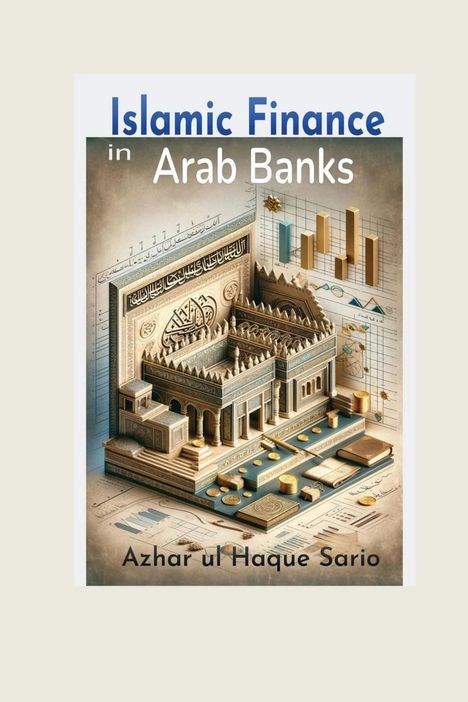Azhar Ul Haque Sario: Islamic Finance in Arab Banks, Kartoniert / Broschiert
Islamic Finance in Arab Banks
(soweit verfügbar beim Lieferanten)
- Verlag:
- Azhar Sario Dubai, 12/2024
- Einband:
- Kartoniert / Broschiert
- Sprache:
- Englisch
- ISBN-13:
- 9783384455598
- Artikelnummer:
- 12134577
- Umfang:
- 198 Seiten
- Gewicht:
- 295 g
- Maße:
- 229 x 152 mm
- Stärke:
- 11 mm
- Erscheinungstermin:
- 12.12.2024
- Hinweis
-
Achtung: Artikel ist nicht in deutscher Sprache!
Klappentext
"Islamic Finance in Arab Banks" is a comprehensive exploration of the dynamic world of Islamic banking and finance, particularly focusing on its practices in the Arab region. This book offers a deep dive into the unique principles, products, and regulatory frameworks that set Islamic banking apart from conventional systems. It starts by presenting an insightful introduction to Islamic finance, tracing its historical evolution in Arab banks.
Central to Islamic finance is its adherence to Sharia law. The book elucidates the core principles of Sharia compliance, including the prohibition of Riba (interest), Gharar (uncertainty), and Haram (forbidden) investments, examining their ethical and social impacts. These principles not only define the operational boundaries of Islamic banks but also underscore their commitment to ethical and socially responsible banking.
The discussion extends to the diverse financial products and services offered by Islamic banks, with intriguing case studies on Mudarabah, Musharakah, Ijarah, and Sukuk. These studies not only illustrate the practical applications of Islamic finance principles but also highlight the innovative strides in product development.
Risk management, a crucial aspect of banking, is addressed with a focus on strategies unique to Islamic finance. The role of Sharia boards and compliance mechanisms in ensuring ethical operations forms a key part of this discussion. Moreover, the book delves into the governance structures and regulatory environments, emphasizing the balance between international standards and local regulations.
A significant portion is dedicated to analyzing the impact of Islamic finance on economic development, including its role in infrastructure financing, support for small and medium-sized enterprises (SMEs), financial inclusion, and poverty alleviation. This discussion is complemented by an examination of performance metrics, comparing Islamic banking with conventional banking in terms of efficiency and profitability.
As technology reshapes the financial landscape, the book explores the intersection of Islamic finance with technological innovations like fintech, digital transformation, and blockchain. The global expansion of Islamic finance, its integration into global markets, and a comparative analysis with Western banking systems provide a broader perspective.
Consumer behavior, market dynamics, and marketing strategies for Islamic financial products are scrutinized to understand the evolving market trends. The book also candidly addresses the challenges faced by Islamic banks, including operational, regulatory, and market penetration issues, proposing practical solutions.
Sustainability and social responsibility form a crucial part of Islamic banking, aligning with the Sustainable Development Goals and ESG (Environmental, Social, and Governance) criteria. The book celebrates success stories from the Islamic banking sector, showcasing innovations and best practices.
With chapters dedicated to education, training, and the role of academic institutions in Islamic finance, the book underscores the importance of knowledge dissemination for the growth of this sector. It concludes with forward-looking insights, predicting trends in Islamic finance and its role in emerging markets and global economic stability.
"Islamic Finance in Arab Banks" is not just an academic treatise but a practical guide that paints a comprehensive picture of Islamic banking operations in the Arab world. It is a must-read for finance professionals, scholars, and anyone interested in understanding the unique features and future prospects of Islamic finance.
Mehr von Azhar Ul Haque ...
-
Azhar Ul Haque SarioJinnah and Pakistan A Shared JourneyBuchAktueller Preis: EUR 26,44
-
Azhar Ul Haque SarioCambridge O Level Biology 5090BuchAktueller Preis: EUR 39,95
-
Azhar Ul Haque SarioBiology Made Easy O LevelBuchAktueller Preis: EUR 28,47
-
Azhar Ul Haque SarioDreamsBuchAktueller Preis: EUR 26,20







